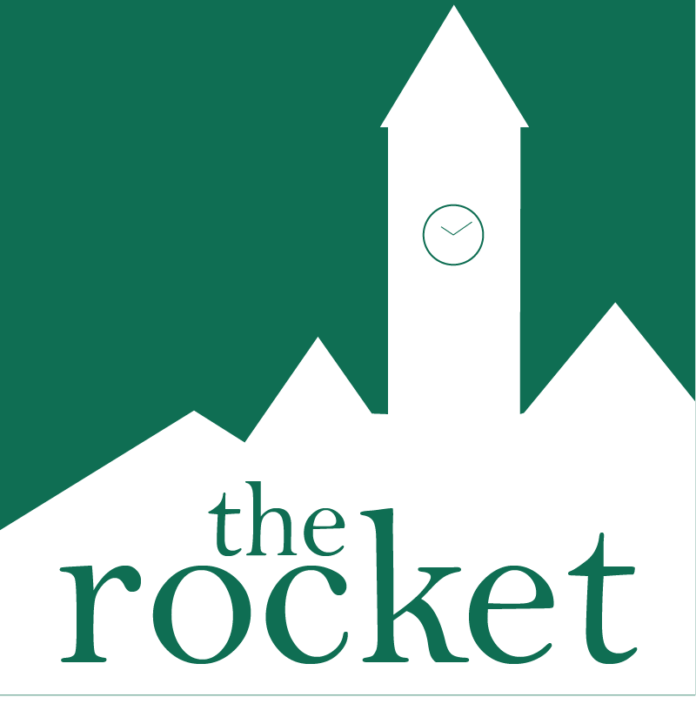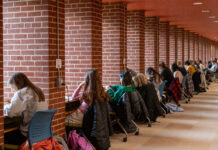“If my system cannot give me justice, I will give myself justice,” said Hanifa Nakiryowa, guest speaker at the International Women’s Day Event sponsored by SUMA, UNICEF and the Women’s Center.
Nakiryowa is a global health associate at the Jewish Healthcare Foundation in Pittsburgh and previously worked with UNICEF-FBO partnership program in Uganda, as well as the Center for Rehabilitation of Survivors of Acid Burns and Violence (CERESAV).
Originally from Uganda, Nakiryowa has lived in Pittsburgh for three years with her two daughters of nine and 13.
“I’m working on becoming a Yinzer’,” Nakiryowa laughed.
Nakiryowa visited SRU to tell “A Story of Courage, Resilience, and Empowerment” after surviving an acid attack from her husband in 2011 in Uganda.
At 29 years old, Nakiryowa was a housewife in Uganda.
“My husband got to choose if I was a housewife or worked,” Nakiryowa said. “I couldn’t live my life like that. I hated it.”
Seven years later, Nakiryowa decided that enough is enough and that she wanted to give her daughters a new life. Nakiryowa’s next step was liberating herself and her children from her abusive marriage.
“I wondered what kind of life my children would live,” Nakiryowa said.
However, simply leaving her husband and Uganda with the children would not come to be easy. One day, Nakiryowa was returning from work as an adjunct faculty member at a university to pick up her children who she had left with her ex-husband after being invited to do so. Upon opening the door Nakiryowa felt a splash of liquid, soon to realize it was acid, on her face.
“My entire face was burning,” Nakiryowa said. “Of course, with how young the children were, they ran after their father toward the door. My one-year-old fell in the puddle of acid. I was hospitalized with my children.”
Nakiryowa didn’t know at the moment but soon came to learn that acid attacks were a major problem in the Ugandan community. According to Nakiryowa, most acid attacks happen in poor households and low-income families.
“This introduced me to an evil I didn’t know existed in my own community,” Nakiryowa sadly said.
Nakiryowa said the children no longer see their father.
“The children had to replay over and over what happened,” Nakiryowa said. “They saw it in the news. They saw him go to court.”
Nakiryowa’s husband faced no repercussions. She had a case to present, but she said that her husband had the money to pay. Nakiryowa keeps asking herself why someone would do such a thing to a fellow person and said that when she lived in Uganda she feared for her life.
“He used those children to get me there to be burned,” Nakiryowa said.
After surviving the acid attack from her ex-husband, Nakiryowa set out to raise awareness and address the issue of acid attacks and gender violence, thus forming CERESAV.
Not only does CERESAV address the issue of acid attacks in Uganda as well as internationally, but they also advocate for changes in the laws related to the distribution and selling of acid and punishment of the perpetrators of acid violence.
Nakiryowa and a few others started an online petition on change.org in Nov. 2015 to get a toxic chemicals prohibition and control bill signed into law in Uganda. With over 280,000 signatures, the bill was signed into law merely two months later.
“I realized that if I want to raise support and awareness, I had to reveal my face,” Nakiryowa said.
After surviving the attack, Nakiryowa hid her face for the first eight months. Since then she has had numerous reconstructive surgeries.
“No one wants to employ a woman with a messed–up face,” Nakiryowa said.
Overcoming all adversities, Nakiryowa set out to receive her master’s in economics and applied for graduate school upon arriving in the United States. In January of 2016, Nakiryowa joined the University of Pittsburgh Graduate School of Public and International Affairs (GSPIA) and graduated December of 2017 with her master’s in international development and human security studies.
Nakiryowa said that people always ask her where to start from. Nakiryowa said that she began by sharing her story, unveiling her scars and taking one step at a time.
“I pushed on and on,” Nakiryowa said. “This opened me up to something I’m passionate about. If I can change one girl’s life, that’s enough for me, because one girl can change the world.”
Nakiryowa sees activists in the making with her girls. Both she and her daughter have recovered, her daughter recovering with minimal scars.
“Life is a journey,” Nakiryowa said. “Life was so hopeless. This taught me to live each day as there is no tomorrow.”








